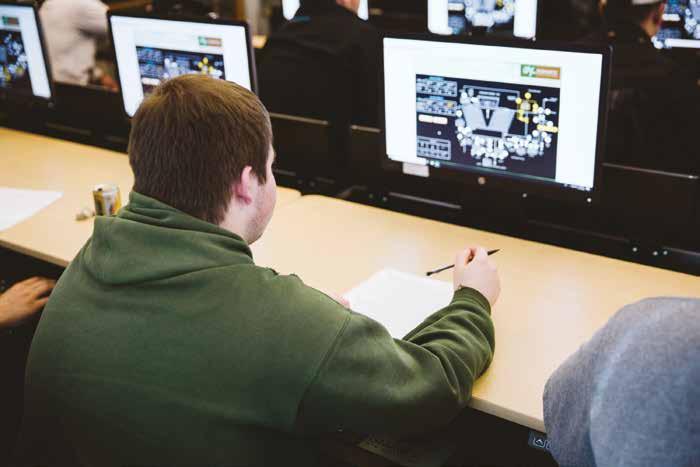
3 minute read
COViD-19 and domestic violence
GATEWAY DOMESTIC VIOLENCE SERVICES
By Jeneen Klippel
Domestic abuse stems from power and control issues. Staying home together more often allows abusers the opportunity to exert more control over their partner.
In many places, stay-at-home orders have been lifted and cities are reopening. Even with these steps to normalcy, there is still an increase in outside stressors as a result of the pandemic.
Many schools are closed for in-person learning, people are isolated from family and friends, and enjoyable activities are being canceled. We have added restrictions on routine tasks, making them more inconvenient and, in some cases, not possible; leading to further disappointments.
Further, the loss of financial security, fear of catching the virus, and restless children at home not able to spend time with friends give an open opportunity for abusers to feel justified to take advantage of their partners. Blaming these added stressors caused by COVID-19, abusers may seek to gain more control and consequently, choose to become more violent with their intimate partners. Even families that aren't experiencing domestic violence report feeling like they need some space from their loved ones. This feeling may be magnified in homes where abuse is present.
Domestic abuse stems from power and control issues. Staying home together more often allows abusers the opportunity to exert more control over their partner. Abusers use many strategies to take away the power from their victims and this pandemic is just one more tool in their tool box.
Every survivor’s situation is different and their unique circumstances present singular challenges. These are some of the tactics that abusers are using to control their victims during this current health crisis:
• Abusers may not allow their victims to seek health care if they are feeling sick. They may withhold their access to a telephone, computer and health insurance information. • Abusers may withhold access to the news or obtaining important updates and information on the virus.
• Abusers who are sharing custody of the children are using the scare of the spread of the virus as a tactic to keep the kids away from their partner.
• Victims who are allowed to work outside the home have stated they have been beaten because their abuser accused them of trying to infect them with the virus.
• Travel restrictions, coupled with abusers not giving victims access to money, may keep them from being able to carry out a safety plan. For immunecompromised victims, flying and public transportation may not be safe.
• Abusers may withhold necessary safety items such as disinfectant wipes, hand sanitizer and face masks.
The new ways abusers are choosing to hurt and control their victims through
the Coronavirus outbreak have risen to shocking and unconscionable levels.
Some warning signs of domestic violence include physical and verbal abuse, threats, explosive angry outbursts and harming your pets. If this is happening to you or someone you know, create a safety plan, which includes gathering important papers (birth certificates, social security numbers, emergency phone numbers, bank account and insurance information), finding a safe person to confide in and creating a code word to alert them that you need help immediately, putting together a to-go bag that has medications, clothing, and comfort items for you and your children, and considering legal options like obtaining restraining and no-contact orders.
Services supporting victims of domestic violence are more important now than ever before. Gateway Domestic Violence Services is committed to being here every step of the way to walk all victims through their journey to safety. We are here for victims – they are not alone.

Jeneen Klippel is the director of development and public relations for Gateway Domestic Violence Services in Aurora, Colorado. She can be reached at jklippel@gatewayshelter.org. w










